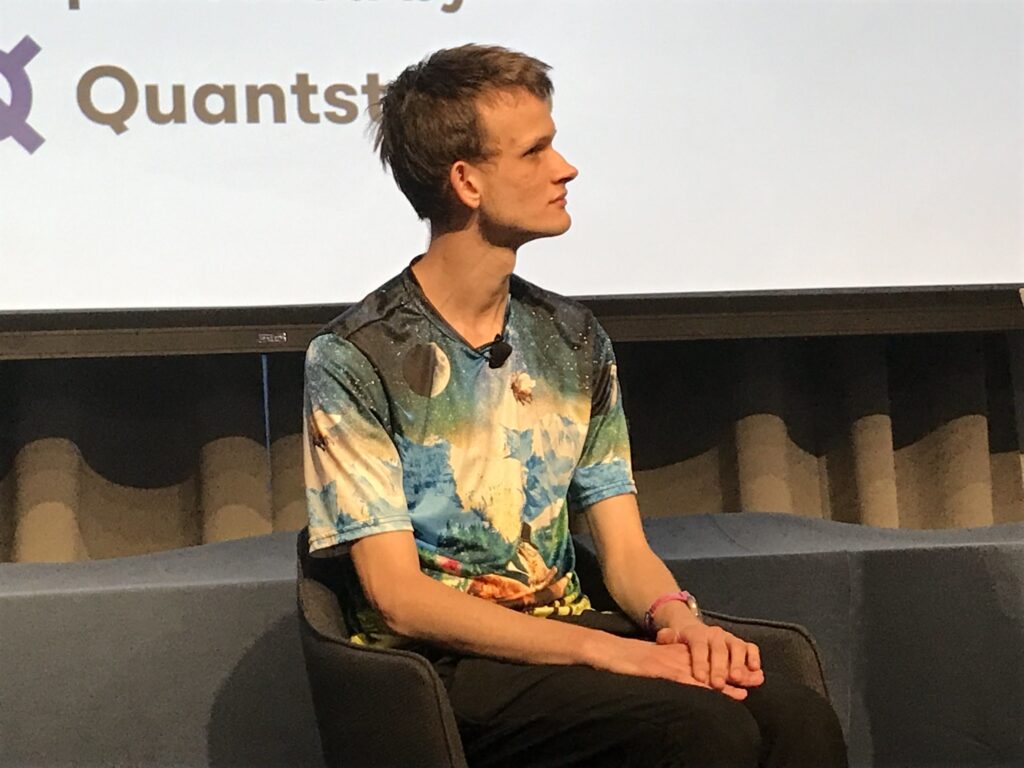-
Buterin’s proposal is detailed and multifaceted, aimed at transitioning Ethereum to a quantum-resistant state through a series of technical innovations and community.
-
Vitalik Buterin’s foresight underscores a pivotal moment for the platform and the wider blockchain community.
-
The integration of quantum-resistant mechanisms heralds a new era of cryptographic security.
The conversation around quantum computing has pivoted from speculative discussions to actionable strategies within the Ethereum community, largely due to Vitalik Buterin’s recent proposal. Buterin, a co-founder of Ethereum, has put forth a hard fork strategy as a preemptive measure to safeguard Ethereum against potential quantum computer threats.
With the foresight that quantum computers might soon crack the cryptographic defences that protect user funds, this strategy specifically targets vulnerabilities in the discrete logarithm problem, which is central to many cryptographic algorithms, including those securing Ethereum.
Vitalik Buterin’s Vision for a Quantum-Safe Ethereum
Buterin’s proposal is detailed and multifaceted, aimed at transitioning Ethereum to a quantum-resistant state through a series of technical innovations and community actions. Key steps include reverting Ethereum to a pre-attack state following any quantum breach, halting traditional externally owned account transactions to curb further exposures, and introducing new, secure transaction types.
One of the novel solutions involves enabling transactions through smart contract wallets compliant with the forthcoming RIP-7560 standard, coupled with the use of STARK proofs for enhanced security. This approach underscores the urgency of adopting quantum-resistant algorithms and the importance of community consensus in navigating such a significant shift.
The Community’s Role in Quantum Readiness
Buterin’s initiative has sparked an extensive dialogue within the Ethereum community, with contributors debating the merits of various quantum-secure solutions. Some advocate for a hybrid approach, integrating NIST-standardized algorithms with existing cryptographic methods, to bolster Ethereum’s defences without significantly enlarging block sizes.
Others propose leveraging machine learning to detect and mitigate quantum-related threats preemptively. This collective brainstorming highlights the Ethereum community’s commitment to staying ahead in the security arms race against quantum computing advancements and its proactive stance on protecting the blockchain ecosystem from emerging technological threats.
Also, Read Flatcoins: Revolutionizing Stability in Cryptocurrency Amid Escalating Global Inflations.
The quantum security challenge presents both a risk and an opportunity for Ethereum. It underscores the blockchain’s vulnerability to technological leaps in quantum computing while also catalyzing innovation in quantum-resistant cryptography and transaction mechanisms.
Buterin’s proposal, emphasizing the introduction of quantum-safe transactions and the strategic use of hard forks, serves as a roadmap for Ethereum’s evolution in the face of quantum threats. It’s a testament to the blockchain’s resilience, adaptability, and the collective resolve of its community to safeguard the platform’s future.
Navigating the Quantum Future: Ethereum’s Proactive Approach
As Ethereum faces the potential quantum computing threat head-on, Vitalik Buterin’s foresight underscores a pivotal moment for the platform and the wider blockchain community. This isn’t merely about resisting an emerging technological force; it’s about evolving Ethereum in a way that not only withstands quantum threats but also strengthens its overall security framework.
Buterin’s hard fork proposal is a clarion call to action, signalling the need for immediate and concerted efforts to ensure Ethereum’s longevity and integrity.
The integration of quantum-resistant mechanisms such as the proposed transaction types and the utilization of STARK proofs for secure operations heralds a new era of cryptographic security within Ethereum.

These measures, while complex, are necessary steps in fortifying Ethereum against quantum vulnerabilities. The proposal to revert to a pre-attack state in the event of a quantum breach, for example, demonstrates a pragmatic approach to disaster recovery, ensuring that Ethereum can restore its integrity and protect user assets effectively.
The Ethereum community’s engagement in this discourse is equally noteworthy. The diversity of opinions and proposals, from adopting NIST-standardized algorithms in a hybrid model to exploring machine learning for threat detection, illustrates a vibrant ecosystem ready to innovate and adapt.
This collective wisdom is Ethereum’s greatest asset in navigating the quantum computing challenge. It highlights a blockchain ecosystem that is not only technologically advanced but also rich in intellectual capital, ready to mobilize in the face of existential threats.
Ultimately, the push towards a quantum-resistant Ethereum is more than a technical upgrade; it’s a testament to the platform’s resilience, the foresight of its leaders, and the collective resolve of its community.
By proactively addressing the quantum challenge, Ethereum is setting a precedent for the blockchain sector, emphasizing the importance of adaptability and the need for continuous innovation in securing the digital future.
Also, Read ETH founder Vitalik Buterin speaks against SEC undermining attempts on the Solana token.
This approach not only safeguards Ethereum but also reinforces the platform’s position as a leader in the blockchain space, prepared to face the complexities of the quantum era with confidence and strategic foresight.
In summary, Buterin’s call to action for a quantum-resistant Ethereum hard fork is not just about technical upgrades; it’s about rallying the community to prepare for a future where quantum computing could disrupt the very foundations of blockchain security.
By incorporating these keywords and themes into the restructuring of the article, we ensure a comprehensive and engaging narrative that captures the essence of Buterin’s proposal and the Ethereum community’s response to the quantum challenge.
